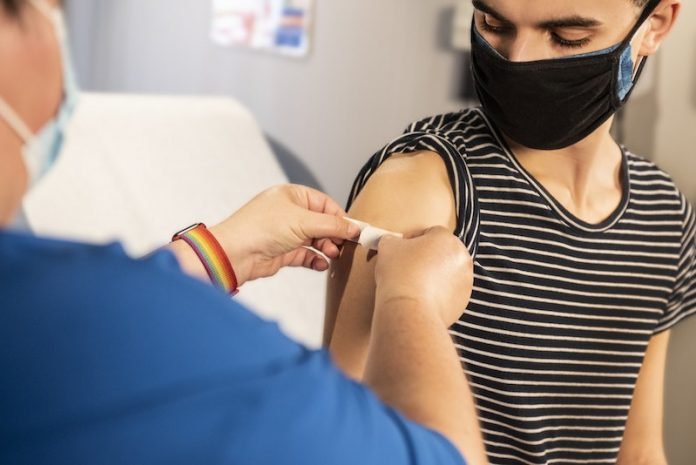
In a new study from CDC, researchers reviewed adverse events following vaccination against COVID-19 with mRNA vaccines in the U.S.
They found that for more than 298 million vaccine doses administered between December 2020 and June 2021, 92% of reported adverse events were not serious, and less than 1% of v-safe participants reported seeking any medical care following vaccination.
In December 2020 two mRNA COVID-19 vaccines—Pfizer-BioNTech (BNT162b2) and Moderna (mRNA-1723) – were authorized for emergency use in the U.S.
Both vaccines involved two primary doses and have shown good safety profiles in clinical trials, with mild effects such as injection site pain, fatigue, and headache being reported as the most common adverse events.
As is the case for all vaccines in the U.S., anyone can report adverse events using the Vaccine Adverse Event Reporting System (VAERS).
These reports are categorized as non-serious, serious, or dead.
In the study, the team looked at available VAERS and v-safe self-reported data between December 2020 and June 2021 following both doses of either the Pfizer-BioNTech or Moderna mRNA vaccines.
During the study period, over 298 million doses of mRNA vaccines were administered (132 million Moderna and 167 million Pfizer).
VAERS received over 340,000 reports of adverse effects with more than 313,000 (92%) registered as non-serious, including headache, fatigue, fever, chills, and pain.
Of the more than 22,000 (6.6%) side effects registered as serious, the most common was shortness of breath.
Approximately 4500 (1.3%) were deaths, with more than 80% of these deaths among people ages 60 years or older.
Because COVID-19 vaccines have been authorized under emergency use, healthcare providers are required to report all deaths following vaccination, regardless of the potential direct association.
The team says due to their age, this group already has a higher baseline mortality rate than the general population. The results follow similar patterns of deaths rates for people in this age group following other adult vaccinations.
They say the big databases can use when evaluating vaccine safety and to help identify any unexpected or unusual events.
These data are reassuring that reactions to both mRNA vaccines are generally mild and subside after one or two days—confirming reports from clinical trials and post-authorization monitoring.
If you care about COVID, please read studies about new COVID vaccine for people with weak immune systems, and findings of why it’s normal for COVID-19 vaccine immunity to wane.
For more information about COVID, please see recent studies about low-cost drug that can treat COVID-19 effectively and safely, and results showing scientists find a new drug that could prevent COVID-19.
The study is published in The Lancet Infectious Diseases and was conducted by Dr. Hannah Rosenblum et al.
Copyright © 2022 Knowridge Science Report. All rights reserved.



